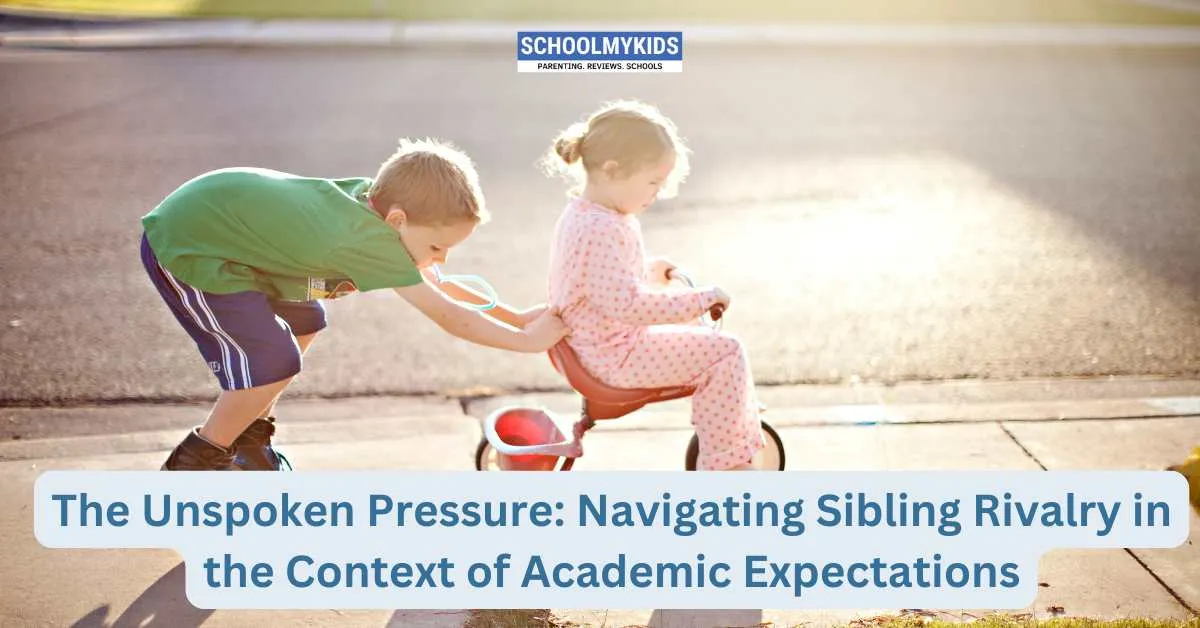Introduction
Sibling relationships can be among the most enduring and impactful bonds in life. They shape childhood, influence identity, and offer companionship through growing pains. But when academics become the main yardstick of success, sibling dynamics can shift. Admiration turns to comparison, support gives way to silent competition, and warmth is shadowed by pressure. This quiet, emotional undercurrent—often ignored by parents and institutions—can deeply affect both high and low-performing siblings.
The Seeds of Rivalry
Sibling rivalry around academics doesn’t always begin with malice—it often starts with well-meaning praise. One child scores well, and the compliments flow. Report cards become family highlights, and suddenly, the “smart one” is crowned. The other sibling, even if equally bright, begins to feel like they’re constantly running behind.
Parents may not realize they’re setting the stage for competition when they make casual remarks like “Why can’t you be more like your brother?” or “Your sister never needed tutoring.” Even light comparisons can deeply wound self-esteem, leading children to internalize labels like “the average one” or “the disappointment.”
The Unspoken Resentment
Unlike open fights or visible rivalry, academic pressure between siblings often goes unspoken. The high-achieving sibling may feel trapped, constantly needing to maintain their image. The other may quietly struggle with feelings of inadequacy, frustration, or resentment.
These emotions can fester for years, influencing how siblings view themselves, each other, and their place in the family. The relationship suffers not because of who they are, but because of the expectations placed upon them.
Impact on Mental Health and Identity
For the “less successful” sibling, repeated comparison can chip away at confidence. They may begin to avoid subjects or activities where their sibling excels, fearing constant judgment. They might act out, withdraw, or lower their own ambitions—not from lack of ability, but from a belief that they’ll never measure up.
For the high achiever, the pressure to always be perfect can be equally harmful. They may fear failure more intensely, isolate themselves, or feel responsible for their sibling’s struggles. In both cases, love and loyalty are compromised by internalized roles they didn’t ask for.
The Role of Parents and Families
Families play a powerful role in either deepening or dissolving rivalry. It begins with awareness. Praise should be effort-based, not comparison-based. Saying “You worked hard on that assignment” is far healthier than “You got more marks than your sister.” Recognize different talents without ranking them.
Allow each child to set their own goals, celebrate their unique paths, and express their emotions without fear of judgment. Shared family experiences that aren't tied to performance—like movie nights, travel, or collaborative games—can also rebuild emotional closeness.
Letting Siblings Be Themselves
Not every child learns the same way, dreams of the same future, or fits into the same academic mold. Siblings deserve to grow in their own direction, at their own pace. When allowed to do so, they’re more likely to admire each other’s strengths rather than compete.
Encouraging collaboration instead of comparison can change the dynamic entirely. When siblings are taught to support each other academically—by studying together, offering feedback, or celebrating milestones—they become allies, not adversaries.
Educational Institutions Must Notice Too
Teachers and school counselors must be mindful of sibling dynamics. Avoid making assumptions or public comparisons between siblings. If one sibling struggles, it doesn’t mean they lack potential—it often means they need space to discover it on their own terms. Guidance sessions that include parents can help unpack unhealthy pressure and promote a more balanced approach to success.
Conclusion
Sibling rivalry over academics is rarely about dislike—it’s about identity, self-worth, and the human need to feel seen and valued. When families and institutions reduce comparison and increase empathy, siblings can thrive together instead of drifting apart. In a world that constantly pits people against each other, siblings should be each other’s safest place—not their first competition.









Be the first one to comment on this story.